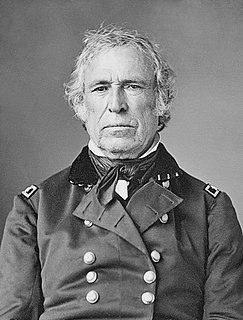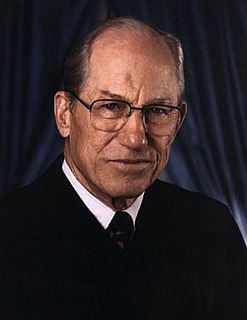A Quote by James Madison
Is there a Legislative power in fact, not expressly prohibited by the Constitution, which might not, according to the doctrine of the Court, be exercised as a means of carrying into effect some specified Power?
Quote Topics
Related Quotes
A constitution is not the act of a government, but of a people constituting a government; and government without a constitution is power without a right. All power exercised over a nation, must have some beginning. It must be either delegated, or assumed. There are not other sources. All delegated power is trust, and all assumed power is usurpation. Time does not alter the nature and quality of either.
If they are incorporated into the Constitution, independent tribunals of justice will consider themselves in a peculiar manner the guardians of those rights; they will be an impenetrable bulwark against every assumption of power in the legislative or executive; they will be naturally led to resist every encroachment upon rights expressly stipulated for in the Constitution by the declaration of rights.
The Constitution expressly and exclusively vests in the Legislature the power of declaring a state of war [and] the power of raising armies.... A delegation of such powers [to the President] would have struck, not only at the fabric of our Constitution, but at the foundation of all well organized and well checked governments. The separation of the power of declaring war from that of conducting it, is wisely contrived to exclude the danger of its being declared for the sake of its being conducted.
Americans revere both the Constitution and an independent Court that applies the document's provisions. The Court has done many excellent things in our history, and few people are willing to see its power broken. The difficulty with all proposals to respond to the Court when it behaves unconstitutionally is that they would create a power to destroy the Court's essential work as well.
The President can exercise no power which cannot be fairly and reasonably traced to some specific grant of power in the Federal Constitution or in an act of Congress passed in pursuance thereof. There is no undefined residuum of power which he can exercise because it seems to him to be in the public interest.
It would reduce the whole instrument to a single phrase, that of instituting a Congress with power to do whatever would be for the good of the United States; and as they would be the sole judges of the good or evil, it would be also a power to do whatever evil they please . . . . Certainly no such universal power was meant to be given them. It [the Constitution] was intended to lace them up straightly within the enumerated powers and those without which, as means, these powers could not be carried into effect.
I consider, then, the power to annul a law of the United States, assumed by one state, incompatible with the existence of the Union, contradicted expressly by the letter of the Constitution, unauthorized by its spirit, inconsistent with every principle on which it was founded, and destructive of the great object for which it was formed.
To refer the power in question to the clause "to provide for the common defense and general welfare" would be contrary to the established and consistent rules of interpretation, as rendering the special and careful enumeration of powers which follow the clause nugatory and improper. Such a view of the Constitution would have the effect of giving to Congress a general power of legislation instead of the defined and limited one hitherto understood to belong to them, the terms "common defense and general welfare" embracing every object and act within the purview of a legislative trust.
Power to the people' can only
be put into practice when the power exercised by social elites is
dissolved into the people. Each individual can then take control of
his daily life. If 'Power to the people' means nothing more than
power to the 'leaders' of the people, then the people remain an
undifferentiated, manipulatable mass, as powerless after the revolution as they were before. In the last analysis, the people can never
have power until they disappear as a 'people.






























